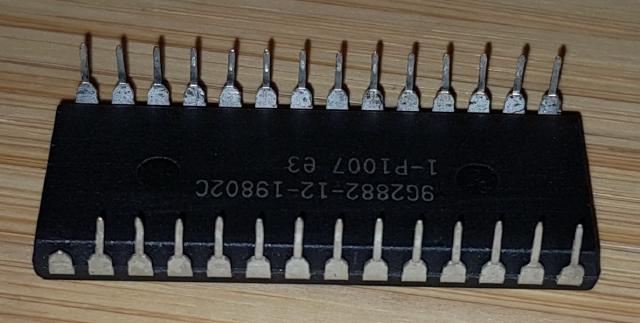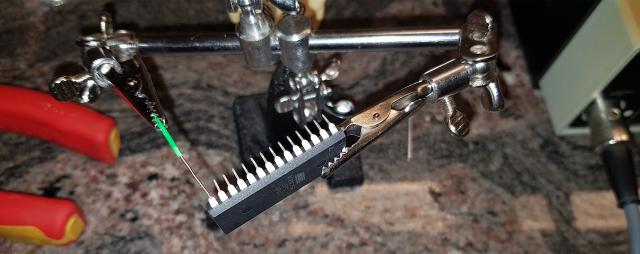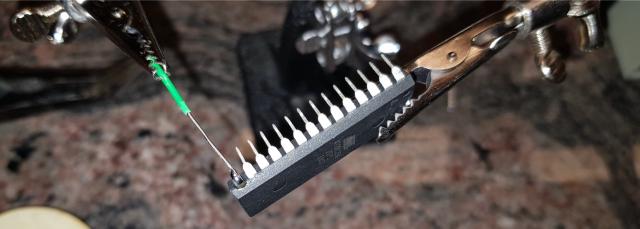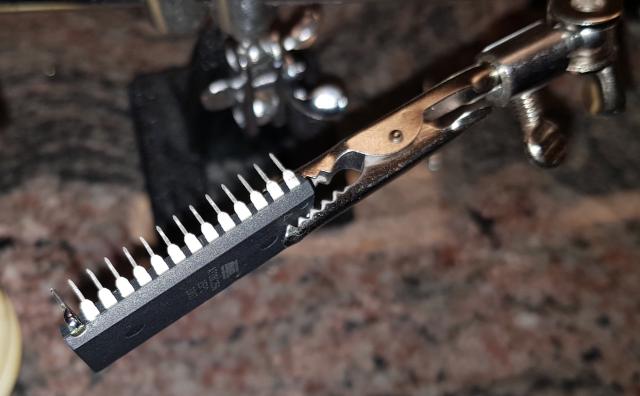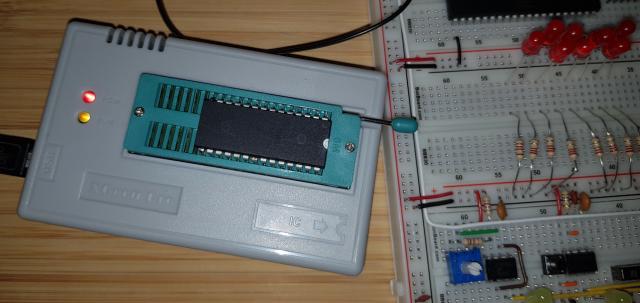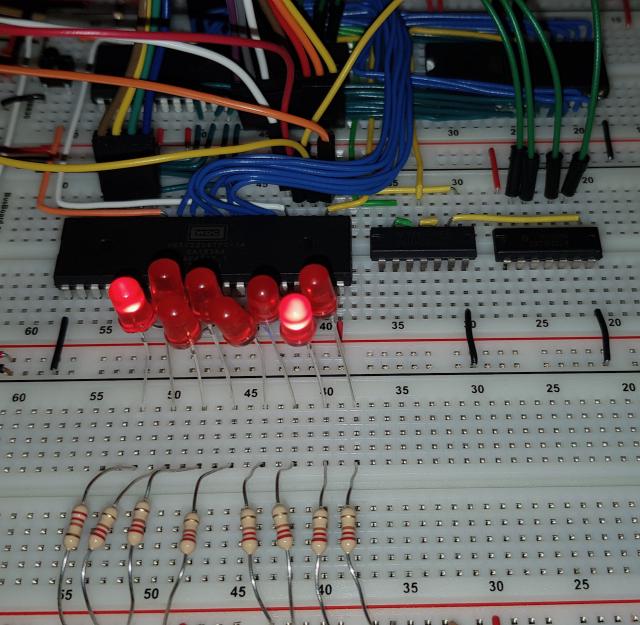Ben Eater 6502 Kit — Day 13 – Macro Assembler
Table of Contents
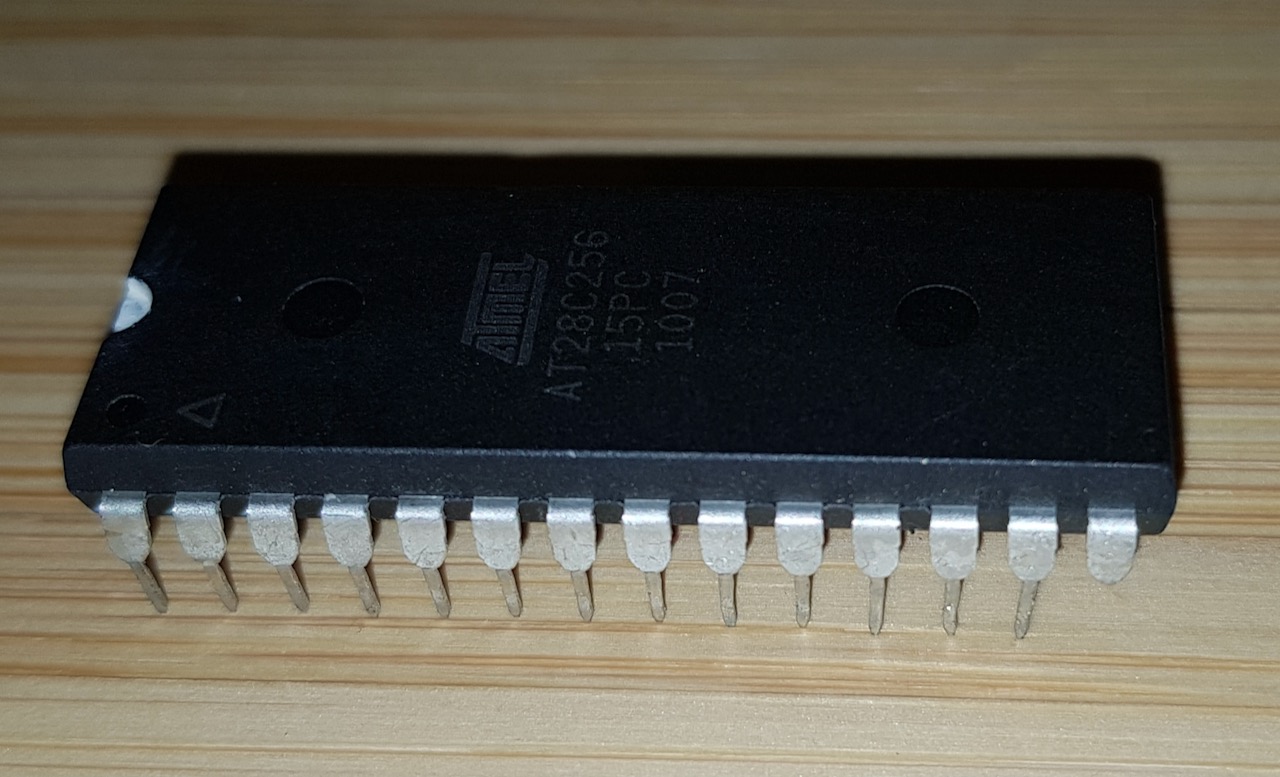
Up until now programming was done in hex code. Which is quite cumbersome and error prone. It’s time to switch to more powerful tools. But first I have to repair EEPROM. I pulled the chip out a little to enthusiastically.
I’m just not a flawlessly perfect as Ben Eater is. Good that I already ordered some spare EEPROMs so this one only has to arrive until the spare EEPROMs arrive.
Now that the EEPROM is repaired we can develop the program to running light for the LEDs. I have decided to use the macro assembler from the CC65 toolchain which is a little more powerful but comes at the cost of needing a little extra configuration.
Linker #
The CC65 toolchain consists of a C compiler, a macro assembler and a linker. The latter needs to know the memory layout of the destination computer. With the extended memory management I implemented the memory layout looks like this:
MEMORY
{
ZP: file = "", start = $0000, size = $0100;
STACK: file = "", start = $0100, size = $0100;
RAM: file = "", start = $0200, size = $7A00;
IO: file = "", start = $7C00, size = $0400,
ROM: file = %O, start = $8000, size = $7FFA, fill = yes, fillval = $EA;
BRKINFO: file = %O, start = $FFFA, size = $0006, fill = yes, fillval = $00;
}
SEGMENTS
{
ZEROPAGE: load = ZP, type = rw;
DATA: load = RAM, type = rw;
CODE: load = ROM, type = ro;
RODATA: load = ROM, type = ro;
HEADER: load = BRKINFO, type = ro;
}
Note that only the ROM and BRKINFO are written to the output file.
Macro Assembler #
In return for the little extra work you get a powerful macro assembler and even a C compiler. But I won’t use the latter. Using a macro assembler I can save myself code duplication. Which is not yet a problem right now but will be in future. So here the totally over engineered macro assembler code:
ORB = $7F00
DDRB = $7F02
NMIB = $FFFA
RESB = $FFFC
IRQB = $FFFE
;;
; Set VIA data directon register B
;
.macro Set_B Value
.ifnblank Value
LDA Value
.endif
STA DDRB
.endmacro
;;
; Set VIA output register B
;
.macro Out_B Value
.ifnblank Value
LDA Value
.endif
STA ORB
.endmacro
;;
; Logical rotate right accumulator
;
.macro L_ROR
.local Skip
LSR
BCC Skip
ORA #$80
Skip:
.endmacro
.segment "CODE"
Do_RES: Set_B #$FF
Out_B #$50
Loop: L_ROR
Out_B
BRA Loop
Do_NMI: RTI
Do_IRQ: RTI
.segment "HEADER"
.word Do_NMI
.word Do_RES
.word Do_IRQ
If you look closely you will notice that I don’t use the ROR command. Instead I use an L_ROR macro. The macro does a logical rotate right (without carry) so there are always two LED lit.
And here a few pictures of the running program:
You find the source code for the program with [makefile]https://gitlab.com/krischik/6502Tutorial/-/blob/develop/Kit/Rotate_LED/Makefile), linker configuration file and assembler source code on GitLab: 6502Tutorial — Tools/Create_LED
